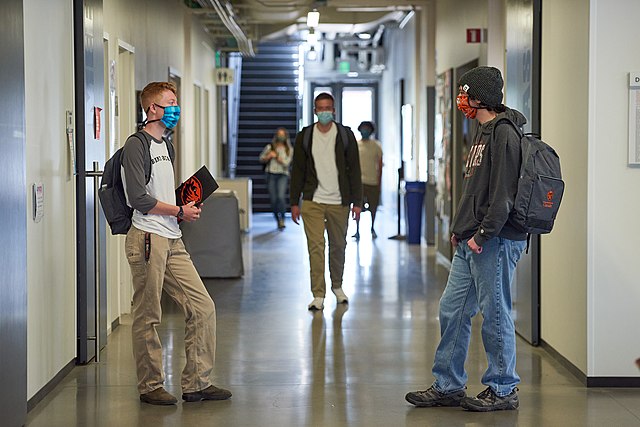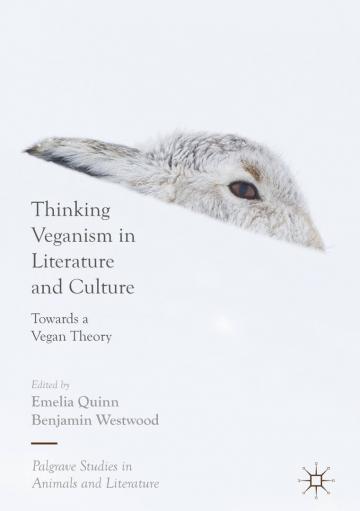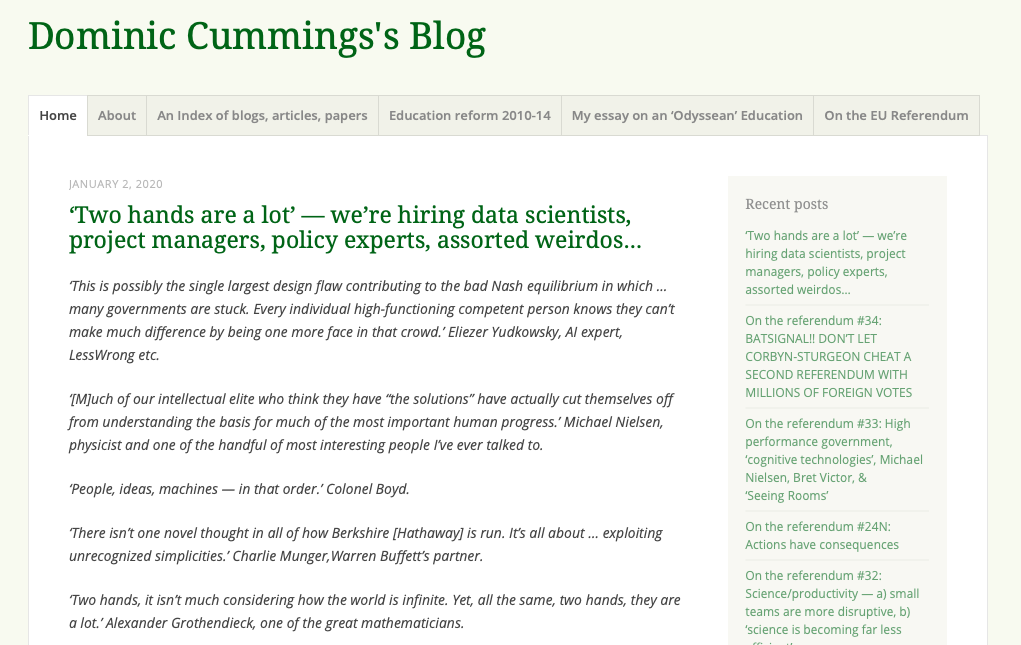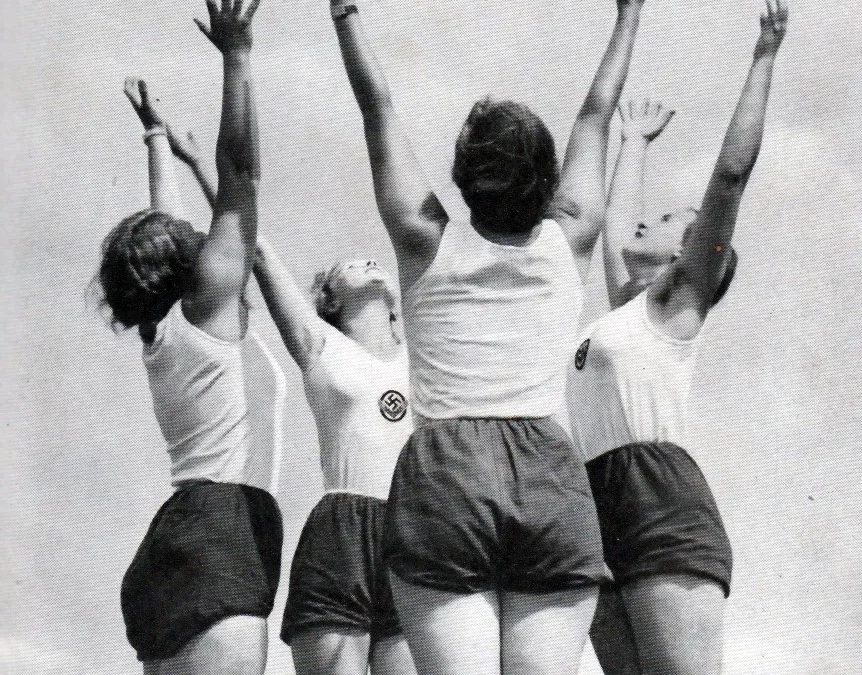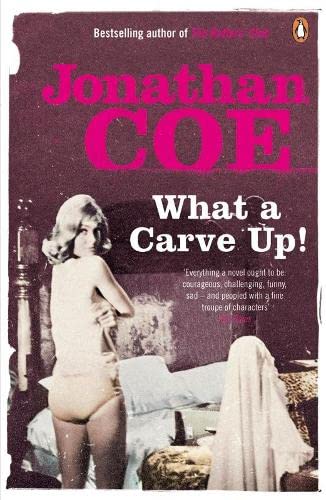This post was written as an article for the journal Studium der neueren Sprachen und Literaturen, 258:2 (December 2021) as part of a series entitled ‘Covid 19 – Voices from the Humanities’, for which humanities academics from across Europe were invited to reflect on the impact of the Coronavirus pandemic – and the measures taken to control it – on their university teaching. Co-writers for the series included Vladimir Andreev (Tula State University, Russia), commissioning editor Christa Jansohn (University of Bamberg, Germany), Stefania Michelucci (University of Genoa, Italy) and Olga Soudlenkova (Minsk State Linguistic University, Belarus). Of its reflective nature, my article belongs better on this blog than within the ‘Academic’ section of this website, and is present here in pre-edited form.
ABSTRACT
This article first summarises the course of Covid-related lockdowns at the author’s home institution (the London-located New College of the Humanities at Northeastern) between March 2020 and the time of writing in May 2021, and then sets out a number of gains and losses that pertain to humanities academics and students, arguing that the latter have felt the gains less and the losses more.
The gains are identified as improved physical safety (not just related to Covid-avoidance), loss of distracting bodily self-consciousness, limited possibilities for and inducements to sexual harassment, greater possibilities of proving any such harassment as may take place, ease of access to e-texts and time saved on library trips, congruence between solitary study and the textual Platonism of e-texts on the one hand and literary studies in general on the other, enhancement of teaching that is possible when teachers have an insight into students’ domiciles, usefulness and comfort to teachers of having their books to hand during teaching, and possibilities offered by Zoom of creating international communities. The losses are identified as restricted opportunities for social and emotional development, especially for young people, and especially in relation to literary studies with their potentially-holistic aspect. It is also noted that campaigns such as those run by student and trade unions are not only facilitated but also limited by online platforms. In conclusion it is judged likely that higher educational institutions will retain many of the gains of online operations, but that their freedom to minimise the losses will be removed by those future zoonotic pandemics which humans’ unabated destruction of the environment and factory of animals make more rather than less likely – as the author’s researches in vegan studies make clear.
LITERARY ACADEMIA IN LOCKDOWN:
GAINS, LOSSES, AND RISKS
INTRODUCTION
Those whose jobs – such as being a humanities academic or student – have kept them at home during the past fourteen Covid-blighted months have been more than usually privileged over those whose jobs – keeping us alive – have required them to leave home. For those in the first category – which I will assume are most of ‘us’, the producers and readers of this journal – there have been a mixture of gains and losses in the new conditions of working. Whether the gains or the losses have been felt most keenly has depended on individual temperament, individual circumstance and – I would argue – stage of life.
Before attempting to describe these gains and losses, however, I will first sketch out the Covid timeline for my own institution in London. In mid-March 2020 there was a meeting of the Academic Board at which the new pandemic was the last item for discussion. The sun shone optimistically through the window onto our conference table as I ventured – in one of my less happy contributions to the life of this Board – that from what I had read the pandemic looked as though it were going away, and there should not be any need for drastic measures. Mine, it turned out, was not the majority view. Within the week that followed our American students on semester abroad programmes flew home suddenly, like a flock, to the States. On the Friday I gave a new lecture on the nascent field of vegan literary theory, which I prefaced by saying that as far as I knew, even before the two hours of our meeting were over, the College might have taken the decision to eject its members and close. As it happened we were allowed to finish. But that afternoon was the last of the College’s opening until – it turned out – September.
By the reopening day in September, antibacterial gel dispensers, sophisticated cameras and sound bars, one-way arrows and socially distanced chairs had been installed around the College at the expense of most of the other furniture. Some students (whose number increased over time) preferred to attend remotely, meaning that the lecturer addressed both the students in-front of them and the camera at their side. This ‘hybrid’ mode, which pleased no-one, ended in November when the UK belatedly re-entered a hard lockdown. Schools reopened the following March, but universities were left off the government’s roadmap for lockdown easing (doubtless in part because students and academics tend not to vote Conservative, and are therefore a low priority for the government). Students of subjects which did not necessitate in-person attendance were finally allowed to return in mid-May, but by this time my College’s students were all in exams and there was little point in recalling them. It remains to be seen whether outdoor in-person socials will be risk-assessed as permissible for the end of this summer term, which is now three weeks away. For September – we hope.
GAINS
Working from home one is safer from a range of bodily dangers quite apart from Covid. One is less likely to catch flu, or to become faint on a rush-hour train, or to get run over by a bus. The body is, to a large degree, taken out of the equation. One does not turn up to work sweating, or exhausted, or having been groped by a stranger, or in need of some coffee or water or the toilet which one didn’t have time to source or use before entering the classroom because one’s Tube train was held up by a strike. Even assuming that one has one’s Zoom camera on – which all teachers if not all students do – one’s bodily privacy is still largely preserved. One can gain or lose weight, grow round with pregnancy, break a leg, shave the back of one’s head or tattoo one’s ankle, without any of this being apparent. Below the waist no longer exists; we are reduced, classically, to busts, where the most space is taken by the head. And heads, after all, are what education is largely about.
Sexual harassment is still alas possible on screen; the law is scrambling to catch up with unwonted sexting, revenge pornography, and the like. But the potential and arguably the impetus for harassment is sharply diminished when bodies no longer meet. By the same token violated parties are more able to prove their cases, and innocent parties are more protected from malicious accusations, by the ease of filming or photographing an incident on a Zoom screen, and institutional policies mandating recording. Such complaints are therefore more likely to be decided on the basis of evidence rather than, as in many other harassment cases, word against word.
So – if the body is reduced largely to the head, the self to the mind, and the sensorium to language, much the same can be said for texts. Literary people exist on a spectrum with regard to textual ontology. I place myself towards the Platonic end: Wuthering Heights is Wuthering Heights, whether published in two volumes alongside Agnes Grey in 1847, or as one volume in a leather-bound set of the Brontës of the 1880s, or in the Belknap Press annotated coffee-table edition of 2014, or on Project Gutenberg or Kindle. Yes, there are textual variants; every variant text is its own Platonic form. But font, font size, print quality, paper quality, book size, book layout, book binding, paratexts, financial value, marmite stains, associations with previous owners or with incidents in one’s own life, are none of them Wuthering Heights. Those at the other end of the spectrum think precisely the opposite, and perhaps they think it all the more about a work like Wuthering Heights than, say, the latest Jonathan Coe novel, since the latter was born into a semi-virtual world, whereas to Cathy, Heathcliff and co., written (as opposed to oral) literature was as physical as the hearth, the heath, the harebells, and the eternal rocks beneath.
Of course, we respond differently according to the form of text which we read, as reader response critics remind us. Meanwhile the pandemic has perforce pushed many of us away from hard copies (housed in homes and libraries that we no longer have access to) and towards e-texts. These are certainly of varying quality when it comes to literature; online one used to be able to come across a version of Women in Love in which Gerald has a fling with a blonde rather than a brunette because the boyfriend of the brunette who inspired the latter – both of whom were friends with Lawrence – threatened libel action and the publisher caved; print editions since the Cambridge University Press edition of 1987 have restored the original. Much is lost to students when Victorian poems are read as e-texts without scholarly annotations. Much is lost to authors when in-copyright literature is read in pirated PDFs. And a work inevitably loses something of its ontological autonomy when it is read on the same screen as an infinitude of other potential texts; the very physicality of a book is a metaphor for the fact that Wuthering Heights is a unique object in the world and that the contents of the universe are expanded by its existence (just as e-texts metaphorically reinforce the claims of post-structuralists that all literature is inter-textual and palimpsestual).
Yet assuming that we are all reading the same words in the same order, the very variability of possible media as well as of editions throws the emphasis of attention onto the common factor – those words (give or take the variants) in that order. And however literary-historicist a teacher or student may be – however alive to how the publication conditions, conventions and technologies of the 1840s may have affected what Emily Brontë wrote – or, alternatively, however alive a teacher or student may be to the novel’s intertextuality, a work’s internal textual operations are generally and rightly a major focus of undergraduate teaching and learning.
This is quite apart from the ease of access to e-texts. Here again we see the disappearance of the body: no more taking busses to libraries, decanting of one’s things into a transparent plastic bag, finding a locker and trying to remember its number, finding the right department, deciding that one’s needs the toilet, then deciding that one needs a coffee and a piece of cake, re-entering the reading room, being handed or locating the right book, and finally being distracted by the person sitting opposite. Instead – a series of clicks, easy proximity of food, drink and the toilet, and no prohibitions on exclamations, musical interludes or the use of pens. For some the library rigmarole enforces concentration, or at least provides an escape from home circumstances which militate against it – nonetheless, other things being equal, e-texts save considerable time otherwise spent on things which might feel like work (being undertaken in an academic environment to an academic end) but really are not. Likewise, the conversations that we might fall into over coffee with the friends or colleagues we bump into in the library might develop our intellects or our understanding of a subject, but as a matter of probability are unlikely to do so as efficiently as the same time spent reading. Moreover certain libraries – the British Library is a notorious case in point, unless this is purely the illusion of my paranoia – have a kind of Church-on-Sunday aura of mutual display. ‘Here am I, in the BL, working on an article. And here are you. What are you doing?’ If library-going is church-going, then e-book reading at home is individual pietism and communion directly with God. Similarly, if classroom attendance is Catholicism, then Zoom teaching leans in the direction of Protestantism, with students being encouraged to explore asynchronous videos in their own time, and the teacher’s profile being reduced to the same size as that of all the students, rather than being magnified by a lectern and a standing position.
There is, arguably, a congruence between such Protestantism and literary study by its very nature. For all that most literature over the course of human history has been oral and communal, and for all that some written literature has been communally consumed (as instalments of serialised novels would be read out to the members of a household, or broadside ballads would be read out by the literate to their illiterate friends), and for all that most plays before George Bernard Shaw were not written in the expectation that they would ever be widely read, and that spoken-word and performance poetry were going strong before the virus struck – most of the works studied on literature degrees were written to be, and are, consumed in solitude. And though most Anglophone literature from the 1920s onwards was written with an awareness, and perhaps a hope, that it might one day be the subject of academic discussion, such discussions are at their best when based on solitary prior engagement and reflection. The Zoom room acknowledges this: though we have come together to discuss Wuthering Heights, we are all coming at it from our own, individual, rooms and lives.
Yet the Zoom room is full of paradox. Most of one’s body may be hidden, but one’s face may be rewatched, screenshot, enlarged, and therefore scrutinised far more closely than it may be from the back or even the front of a classroom – as applies to streamed film when compared to live theatre. One may be discreet about certain aspects of one’s life (such as the tattoo) more effectually, but unless one has a relatively new laptop that can handle Zoom backgrounds (mine can’t), one necessarily reveals something of one’s home. Learning something of students’ residences can, whatever the students’ own sense of invaded privacy, actually help a teacher, by making them sharply aware of who does or doesn’t have good internet access, who rooms with someone else, and a host of other contextual factors which suggest more relevant ways of helping them, and dissuade one from irrelevant or unhelpful admonishment (admonishment being in any case more difficult when one can’t meet a student’s eyes; Zoom forces a choice between looking aslant at one’s interlocutor’s face and looking directly at the camera alone).
Moreover, though e-teaching in general relies more heavily on e-texts, if one has one’s books at home rather than in an office, one has them more readily to hand than when teaching in a classroom. Many a time I have walked a couple of metres (deciding that pedagogic advantage outweighed the indignity of being espied in pyjama bottoms) to pull down and cite from a relevant book. My very knowledge that I have my whole battery of books at my back (and I have plenty, despite my textual Platonism) enhances my confidence, just as the fact that I am literally on home ground makes me more relaxed and, I think, a better teacher. A further paradox of Zoom is that, whilst local physical communities have been revived by the reduction in commuting, international communities have also been strengthened or created. My lectures have united students in Georgia USA, Spain, England, Germany, Norway and Russia. The D. H. Lawrence group which I set up to serve London and the South of England is now still more international than my lectures. Finally, nature – precisely because of its othering by hardware and software and Platonic texts – currently has an urgent neo-Romantic appeal as an escape from all these things and from the virus itself. Meanwhile it is being preserved by all the bus-to-library-riding, plane-to-conference-catching, handout printing and book printing which are now not taking place.
LOSSES
All of these gains apply to greater or lesser degrees to both students and their teachers. However, those with distracting home work spaces, poor technical equipment or poor internet access will benefit less – and these are more likely to be students. Moreover it seems to me that the losses fall on the students still more emphatically. Thinking back to my own arrival at university as an undergraduate, habeas corpus was essential to the rapid social development that I underwent thereafter. Through all my senses I apprehended how other students presented themselves, spoke and acted. I negotiated late-adolescent sexuality and the effects of alcohol and decided to shun drugs (a wise drug-taking fellow student putting it to me that ‘the thing about personhood is that it’s fragile’). I obtained decisive proof that I couldn’t act, and that though I was the fastest winger on the university rugby team I would never make a top athlete, nor did I want to. And for what it was worth (and in a class-bound country such as England it is worth a lot) I learned what formal clothes looked like and in what order to use multiple sets of cutlery and how to crack a crème brulée crust with a silver mallet (not too softly, it turns out, but not so hard that one cracks the bottom of the dish). These are the kinds of things one can learn at university – admittedly, especially a certain kind of university – in addition to how to approach Ulysses, and though the students of the last fourteen months may have had the more time to get to grips with that spectacularly complex novel, they have not been able to go on the kind of multi-sensory, multi-faculty odyssey of growing up and outwards that undergraduate life normally is.
Sexuality is worth a further mention. Undergraduates are not typically of an age or stage to be seeking life partners, but many are seeking partners, and most have an intensity of physical aliveness that relishes the proximity of other people of the same age. How constrained were so many instincts when, in that brief window in early autumn 2020, students in my college were allowed in the building but only wearing masks, sitting 1.5 metres apart, not allowed to face each other even for break-out groups (which took place on Zoom via headsets), and obliged to leave the building the moment their class was over. I do not think that students miss being in a room with their teachers so much as being in a room with each other – and this is understandable.
There is a further point which applies particularly to subjects such as English. One of the most important aspects of my undergraduate education was the demolition of the distinction between ‘study’ and ‘living’. There may be all kinds of sensible reasons to re-erect it at a practical level once one is a professional academic having to balance ‘work’ and ‘life’, but it was essential to my development as an academic, and my desire to become one, that I learned that thinking perceptively about literature is a particularly intense and insightful mode of living, and that when one is living most intensely and universally one is closest to literary perception. It was therefore vital that I did not simply have tutorials in the afternoon, and then slope off to do student ‘life’. The greatest and wisest of my teachers would invite his students for termly ‘drinks parties’ in the very same study where he held his tutorials. There, in a haze of wine, our intellectual and emotional, professional and passional modes of being came together, and the volumes of literature on his shelves were palpable with life and truth, rather than the sources of puzzles to excel or embarrassingly fail at. A fainter version of this experience pertains to academics at conferences. Though the conversations which take place during conference breaks and dinners are perhaps less likely to address academic matters than those which took place at those student drinks parties – there being so much more experienced ‘life’ to share and discuss – nonetheless a passion for the theme of the conference is what has brought all these people into communion from afar, and the shared breaking of bread and wine emphasises the fact that thinking about this thing is one of the things we live for and through.
The final loss is political. In the online world there is a loss of certain freedoms – freedom from scrutiny, freedom of serendipitous association, freedom to raise passions amongst people feeling the power of physical as well as ethical unity. All of these things reduce the ability to resist, or even to form a coherent position in response to, ‘power’; the scientific impartiality of the computer screen has the effect of rendering questions academic rather than vital, and pictorialises the separateness of student or trade union members even as it lowers the barriers to their attendance of meetings. As governments including the British have discovered, pandemics can be a good time to ‘push things through’.
CONCLUSION
For good or ill, some of the changes caused by Covid-19 are likely to prove durable. Hybrid teaching, for all its current limitations, allows students a choice of attendance modes and gives universities easier international reach. The manifest savings in terms of time and commuting expense permitted by Zoom will render some teaching, and many staff and student meetings, virtual by mutual agreement – for all the social and political losses. Moreover the freedom to select only those aspects of lockdown working which seem on balance to be best will be removed again as and when new pandemics strike. As my vegan studies tell me, human despoilation of the natural environment, exploitative contact with wild animals, and antibiotic-dependent factory farming of domesticated animals, are all brewing future viruses. Three in four of the world’s new infectious diseases come from animals; SARS, MERS, Ebola, avian flu and swine flu are all zoonotic. Growing scientific authority asserts that only through a radical change in human treatment of animals – and therefore of human diets – can the risk of future pandemics be substantially reduced. The first iteration of my vegan theory lecture therefore, on the eve of lockdown in 2020, made the connection; but I made it with far greater passion when I delivered it again in March 2021 – such passion as I hope was transmissible even via Zoom. In order that we may retain the gains of the online world whilst cutting the losses – retaining all that is most emotionally and socially valuable in physical meeting, especially for younger adults – it is time for us to start realistically weighing the convenience of habit against the catastrophic risks of inertia.
